Updated 06 Jan 2026
We are currently facing an environmental crisis with humans being the cause of so much damage to our land, oceans and atmosphere.
But you can help! Your actions can make a huge difference and help protect our planet.
Here are 26 easy tips on how you can be more eco-friendly in your everyday life.
1. Grow Your Own Food
Growing your own food is one of the best ways to be more eco-friendly. By making your own food you are significantly reducing your environmental footprint from the agricultural and transport industry.
It promotes healthy soil and is a place for you to put your compost to good use (see point 5). Plus growing your own veggies is healthier and allows you to eat according to the season.
Even if you don’t have much space in your yard for a big veggie garden, growing your own herbs in pots and sprouting your own grains is a great place to start.
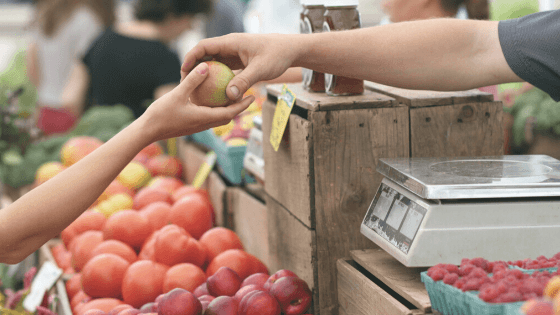
Source: https://www.canva.com/media/MAC5EszNz5I
2. Invest In Sustainable Kitchenware
Opt-out of cheap plastic kitchenware and invest in kitchenware that is made from sustainable materials like coconut wood, bamboo, glass and stainless steel. This kind of kitchenware will last for much longer and can be properly recycled if you end up needing to get rid of it.
Examples of sustainable kitchenware include coconut bowls, bamboo cutlery and utensils, mason jars for food storage, glass straws and stainless steel water bottles.
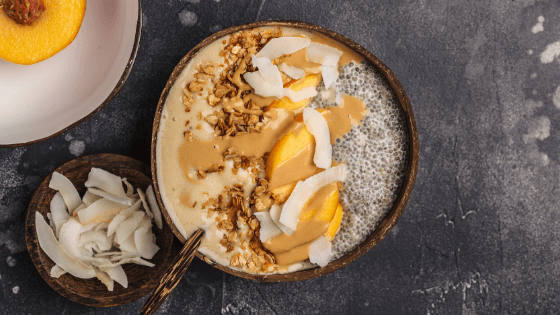
Source: https://www.canva.com/media/MADCjKbcDFQ
3. Make Your Trip To The Supermarket Plastic Free
You should try your very best to never use plastic bags from the supermarket. Supermarkets, for the most part, don’t even have plastic bags anymore!
Make your life easier by buying good quality grocery and cooler bags and keep them in your car so you can’t forget them!
Also when you are at the supermarket don’t use the plastic bags when selecting fruit & veggies,instead, just leave them loose in your trolley. Try and bring your own paper bags for the bulk bin items to avoid the plastic zip-lockbags.
Make sure you purchase biodegradable plastic bags for use in your rubbish bins at home.
4. Always Use A Reusable Coffee Mug
Invest in a reusable coffee mug like a KeepCup if you are getting coffee to takeaway. Always ask for a cup if you are sitting down for a coffee.
This is much more eco-friendly than using a paper coffee mug. Most of the time disposable coffee cups are not recyclable because they contain a lining of plastic due to them needing hold hot liquid.
If you must have a takeaway coffee cup always ask them to leave the lid off as these are made of plastic.
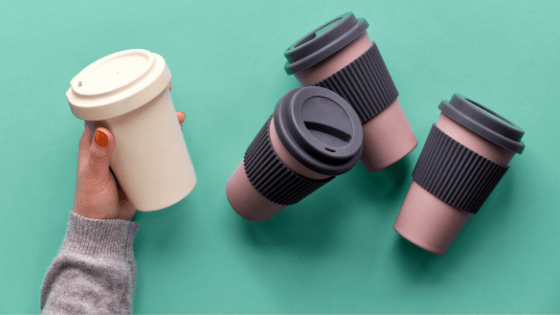
Source: https://www.canva.com/media/MADvJnJfHVI
5. Turn All Food Scraps Into Compost
Instead of throwing your food scraps down the InSinkErator or into the rubbish put them all into a compost bin.
You can use the compost in your garden or in your pot plants. If you don’t garden you can give it to your neighbours or family and friends.
This will ease up what we put into landfill and will help you well on your way to becoming waste-free.
6. Use Beeswax Wraps Instead Of Plastic Clingfilm
Clingfilm is a terrible source of single-use plastic that ends up in the landfill. It gets broken down into tiny pieces like dust that remain in your atmosphere forever.
To help minimise this stop buying clingfilm and instead invest in beeswax wraps to cover your food. These are available for purchase or you can make your own!
If you can’t get your hands on beeswax wraps use glass mason jars or even use a small plate to cover food in a bowl.
7. Make Your Own Cleaning Products
Cleaning products are full of chemicals which you do not want in your home. Plus they are expensive!
You can easily make your own cleaning products at home, using ingredients that you probably already have in your pantry like baking soda and vinegar.
Add some essential oils and you have luxurious and eco-friendly cleaning products. Tea tree oil is antibacterial so is a great option to add to your cleaning products.
Invest in good quality glass spray bottles to store your cleaning products in.
8. Use Microfibre Cloths For Cleaning
Ditch the paper towels! Microfibre cloths are the best option for all cleaning purposes. They are very high quality and last a long time. Plus the fabric is effective at cleaning with just water or minimal homemade cleaning products.
Invest in a good quality microfibre window cleaning cloth as well so you can get sparkling windows and mirrors without using any chemical sprays.
9. Shop at Bring Your Own Container (BYOC) Bulk Bin Stores
BYOC bulk bin food stores are the most eco-friendly way to shop for pantry grocery items like grains, nuts,seeds, spices, rice, oils and flour. A lot of these stores also make their own kinds of nut butters!
Bringing your own containers is the best way to save on excess waste. Most of these bulk bin stores will also sell eco-friendly glass containers if you don’t have your own.
GoodFor and Bin Inn are two great bulk bin stores in New Zealand.

Source: https://www.canva.com/media/MADaE90fsws
10. Purchase Fruit & Veggies From A Local Farmers Market
Make the effort to go to a local farmers market to get your produce. A lot of local farmers will also have an online store and deliver right to your door like Mangawhai Grown, who deliver locally in Northland and in Auckland.
By purchasing from a farmers market you are supporting small local businesses who use sustainable practices to grow their produce. They also don’t throw away produce because it doesn’t look perfect, they are more organic and only seasonal.
Farmers markets will never package your produce in plastic as the supermarket does. You are also not contributing to emissions caused by importing produce or having it travel vast distances to get to the supermarket.
11. Buy Food With Minimal Packaging
When shopping at the supermarket make wise decisions and avoid purchasing food that is in plastic packaging. Always look for packaging that is recyclable and biodegradable. Always avoid prepackage and precut fruit and vegetables.
As mentioned above stick to bulk bin stores and local farmers markets as much as possible.
Choosing food this way is also much better for your health as it is usually the most unhealthy and processed food that comes in packaging.
12. Walk & Cycle Wherever Possible
The legs we were given were made for transporting us so use them! If you need to go somewhere that is just a 5-minute drive, just walk.
Cycling is also another great option to be more eco friendly.
It can be difficult cycling in cities like Auckland where there are hills everywhere but luckily we now have electric scooters and bikes which you can rent using an app from the side of the road.
Using your body to get you from a to bis not only great for the environment it is amazing for your physical and mental health.
13. Carpool
If you need to get somewhere that is a bit further away and driving is the only option always try to carpool. Check with friends who need a ride if you are going to the same place.
There are also local community Facebook groups where you can find people going to the same place as you.
Save the environment, save petrol money and make some new friends while you are at it!
14. Reduce Meat, Fish & Dairy Consumption
The meat and dairy industry is one of the biggest contributors to environmental damage. These industries use an exorbitant amount of land, pollute waterways and the oceans and are responsible for more carbon emissions than all the planes,trains and cars in the world combined!
Irresponsible fishing is also devastating for our oceans and the ecosystem.
Reducing or eliminating meat, fish &dairy from your diet will go a long way to helping the environment and is the single most impactful thing you can do to be more eco-friendly.
15. Use Bars of Soap & Shampoo
Liquid soap and shampoo bottles are usually always made of plastic. Swapping your liquid soap and shampoo for bars of soap will help you reduce your plastic waste.
Bars of soap and shampoo are more natural, economical and last for much longer.
Dirty Hippie has a great selection of soap and shampoo bars as well as many other eco-friendly toiletries.
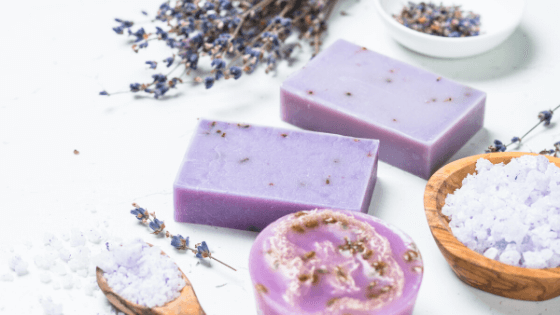
Source: https://www.canva.com/media/MADnucdwXgE
16. Purchase Clothing That Is Made Of Natural Fibres
When purchasing clothes avoid synthetic fabrics like polyester and stick to good quality pieces made from natural fibres like cotton, linen and hemp. Buy organic where possible.
Always invest in high-quality pieces that will last so that you reduce what ends up in the landfill. Avoid fast fashion stores like K-Mart, The Warehouse, Glassons and Cotton-on.
When your clothes do wear out, cut them up and use as rags and cloths.
Do your research on clothing companies that have sustainable fabrics and ethical business practices.Original Canvas and The Hemp Temple are two great stores making eco friendly clothing.
17. Buy Second Hand & Donate
Buying second hand is the best way to be more eco-friendly when you shop. Don’t be lazy! Take the time to trawl through charity and op shops.
You will find some unique pieces,greatly reduce waste and will save so much money!
Clothing, shoes, furniture and kitchenware are all amazing things to buy second hand.
Once you no longer need items of clothing or furniture make sure you always donate them instead of throwing them away.
18. Plan meals & Freeze Leftovers
This is the best way to avoid food waste. Before you go to the supermarket plan out what meals you need to make for the week, write a list and stick to it. Consider making recipes that freeze well like soups and curries.
When you shop and prepare food like this you won’t have to think about what to cook, will always have what you need and won’t let anything go to waste.
19. Reuse & Repurpose Over Recycling
There has been so much emphasis on recycling to be more eco-friendly but this simply isn’t the case. A lot of what you put in the recycling actually ends up in landfill because it can’t be recycled anyway.
The best thing you can do is to reuse and repurpose packaging and containers. Even if it is plastic. You can use plastic water bottles to make pot plants and turn jam jars into candles.
Always think about how you can reuse or repurpose something before you throw it away.
20. Only buy things you really NEED
In our society, we have been so driven by consumerism. We have been heavily influenced to always want more stuff! This is having a terrible impact on the environment.
You can help by only buying what you truly need, not just something that you want. Never buy two of the same thing and when you do buy something make sure it will last.
21. Support Local Small Businesses
By supporting local small businesses for everything from cafes, to groceries, to clothing to candles you will really reduce your footprint. Plus you will help the small guys realise a dream!
Supporting local businesses, especially ones that focus on sustainability, you will greatly reduce the carbon emissions and environmental destruction that you contribute to.
Plus things purchased from local small businesses are usually much higher quality, unique and have genuine thought and love put into them!
22. Always Run A Full Dishwasher & Washing Machine
Always wait until you have a full load of dishes or clothes before running your washing machine or dishwasher. This will greatly reduce the amount of water and electricity you use.
Make sure you select the environmentally friendly option if your appliance has one and purchase appliances which use less energy and water.
Also, ditch your clothes dryer! Opt to line dry your clothes instead.
23. Make Your Own Deodorant & Skincare
It’s easy to make your own deodorant and skincare products.
Regular deodorant has aluminium in it which is detrimental for your health plus it is full of other chemicals and the packaging is usually made of plastic. The same goes for most skincare products. Learn how to make your own deodorant here.
You don’t need a million lotions and potions to have glowing skin. All you need is good quality oil that is suitable for the skin on your face like jojoba, almond, rosehip or hemp oil.
Combine this in a glass dropper bottle with a few drops of your favourite essential oils like lemon,lavender and geranium and you have an amazing natural moisturiser that will last for a long time.
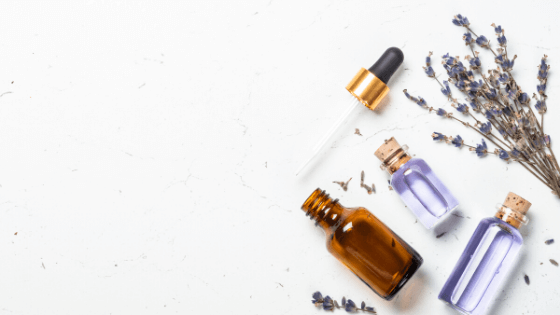
Source: https://www.canva.com/media/MADnuavRS1s
24. Go Paperless
Make sure you go paperless for all your bank statements and bills. Have them emailed to you instead.
This will save so much paper, plus you can’t lose them!
25. Ditch Plastic Cotton Buds & Disposable Cotton Pads
Invest in reusable cotton buds and pads or at the very least purchase ones made from organic cotton and bamboo.
This will greatly reduce unnecessary waste coming from your bathroom.
26. Swap Tea Bags For Loose Leaf Tea
Did you know that tea bags contain plastic and are actually really bad for the environment when they endup in a landfill? This is easily fixed by investing in an awesome tea strainer and loose leaf tea. You will learn to love the ritual of brewing up loose leaf tea.
Plus loose leaf tea is higher quality,tastes better and you will have more options of ethically sourced tea. Tea Total has a great selection of loose leaf tea in NewZealand.
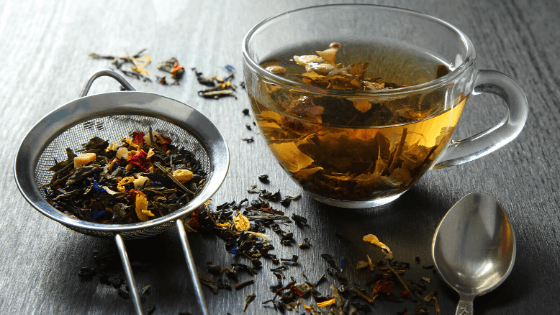
Source: https://www.canva.com/media/MADapKsFjuE
There you have 26 simple tips which you can implement in your life and start making a positive difference in our world today!